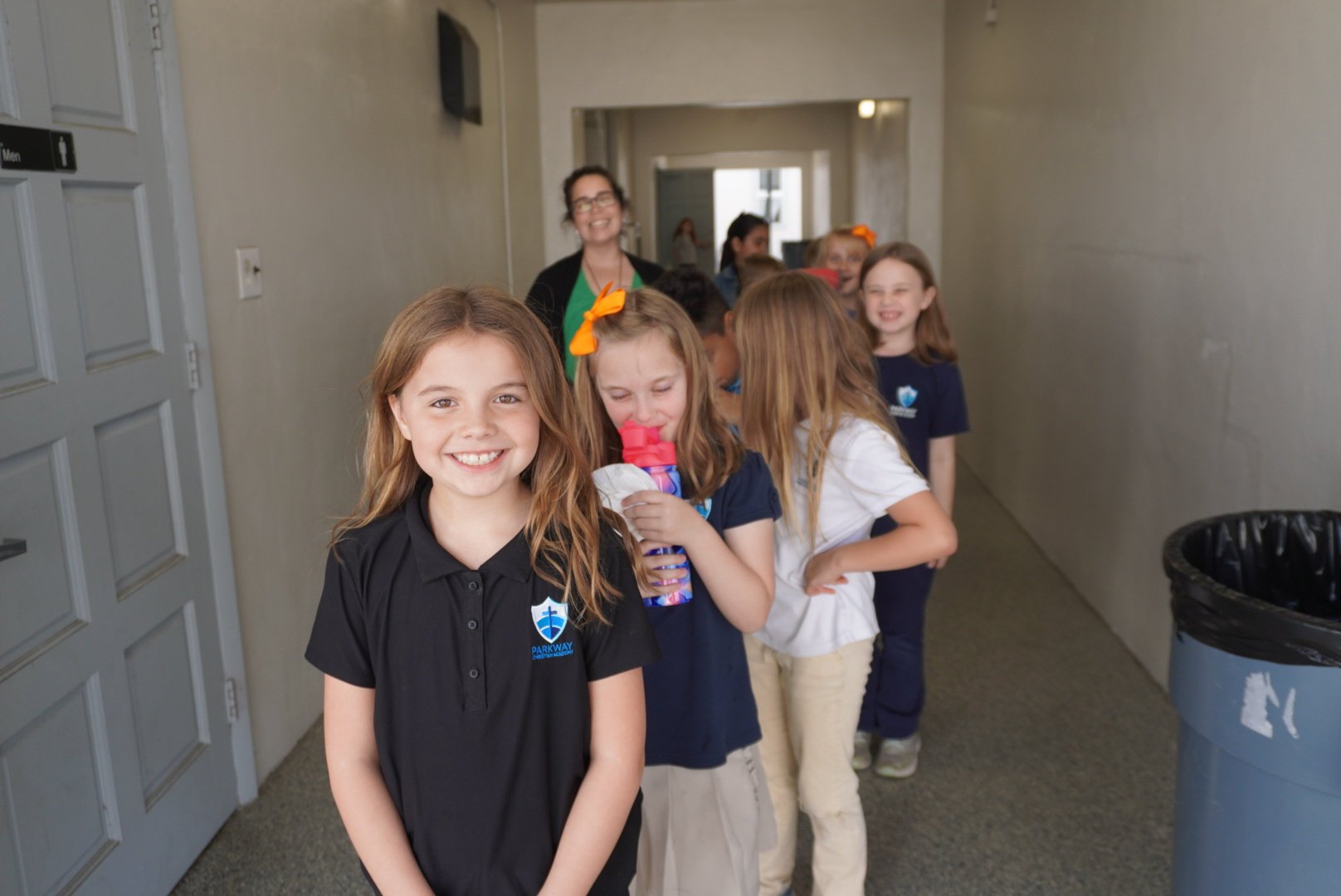
ACADEMICS
-

EARLY CHILDHOOD VPK
-

KINDERGARTEN
-

ELEMENTARY
-

MIDDLE SCHOOL
-

HIGH SCHOOL
ACADEMIC EXCELLENCE
FROM A BIBLICAL WORLDVIEW
Parkway Christian Academy, we believe true excellence begins with Christ at the center. We strive to glorify God, disciple students, and pursue excellence in every classroom and life lesson. We invite you to visit our campus and see firsthand how we’re raising up the next generation of leaders—spiritually grounded, academically prepared, and purpose-driven.
We embrace a three-fold academic purpose that shapes everything we do:
To build a strong foundation of essential skills and ensure mastery and confident application of foundational academic skills.
To develop critical thinking, godly character, and social-emotional growth—nurturing students to become compassionate, confident, and Christlike individuals.
To provide engaging and enriching opportunities that challenge students academically and spiritually, helping them grow into the fullness of their God-given potential.
From early childhood to high school, Parkway is committed to nurturing both hearts and minds for God's glory.







